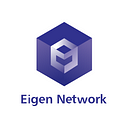A Brief Introduction to the Arbitrum Ecosystem- Wallet
Arbitrum One was launched on August 31st. From then on, there was an increasing number of projects launched on Arbitrum. As you can see in the image below, more and more members joined the Arbitrum Ecosystem. A diversified ecosystem is taking shape.
This post will offer you a comprehensive profile of 18 wallet projects in the Arbitrum Ecosystem. We collected the information from several sources, including the Arbitrum One Portal, the public announcement of the project(some projects have not launched on Arbitrum). No more words; let’s get right to the topic.
We classified the 18 projects into four categories based on their functionalities.
- Traditional Wallet: imToken, TokenPocket, MathWallet, MetaMask, Mask, Coinbase
- DeFi Wallet: Debank, Zerion, Zapper, Liquality
- Smart contract Wallet: EigenSecret, DeKey, Sequence, GoPocket
- Infrastructure: Zippie, Fortmatic, Portis, WalletConnect
1. Traditional Wallet
You should be familiar with these wallets. I believe most of you have used at least one of those six products, especially Metamask.
Functionality: Basic funds transfer, like send, receive, and swap.
To satisfy users’ needs, the functions provided by each project are becoming more and more abundant. Take TokenPocket as a case in point. It allows users to enjoy various DApps, Application Programming Interface(API) and so on. Modules such as newsletters, articles, and twitters will be added to the product. MathWallet offers staking service. It means that users can stake on MathWallet validators and earn rewards.
Lived on Arbitrum One: Yes.
2. DeFi Wallet
This kind of wallet mainly rises with the concept of DeFi in 2020, which allows users to store their funds without relying on a third party to hold their assets. Most of them exist in the form of a “dashboard”. On the front page of the project, we can check the total assets, NFT collection on each chain. Take zapper as an example:
Functionality: Check on assets on each chain, NFT, Token pair transaction, Provide liquidity of assets, Staking, lend, and loan services.
Lived on Arbitrum One: Yes.
3. Smart contract Wallet
Here is what we want to share most- one of the most creative projects in the Arbitrum ecosystem. I hope you can experience these wallets in person. Most of them have not or just undergone ICO(Initial Coin Offerings). The early bird does catch the worm, and maybe you can catch the chance to obtain the opportunity to make a fortune!
- EigenSecret
EigenSecret is a cross-chain bridge for token circulation released with the privacy-preserving functionality, which enables users to transfer assets from Layer 1 to Layer 2.
EigenSecret is committed to protecting users’ privacy information, including transaction amount, address, and interaction. Besides, it supports multi-sig, two-factor login, private key recovery, etc. Up to now, the product has not been launched yet. According to the official news, it is expected to be released in October. Let’s look forward to its launch together!
- GoPocket
GoPocket is a mobile wallet focusing on security. In addition to the dashboard and cross-chain functions, it also provides contract security detection services, which can help users detect some high-risk or vulnerable projects and reduce the security risk of users’ funds.
Now, it has lived on Arbitrum One.
- Sequence
Sequence is a web wallet that supports the transaction of tokens and NFTs. Unlike any other wallet, Sequence does not require users to remember keys/mnemonics. Instead, users can register and log in through Google Mail or Facebook, reducing the time and effort to learn new knowledge for many beginner users.
However, at present, the product functionality is limited, and the token transaction needs to redirect to the third-party interface.
- DeKey
Dekey is a new security wallet. Combined with Secure MPC technology, Air-gapped Sign, multi-factor authentication, and other functionalities. The wallet sets multiple security checkpoints such as “account mnemonics”, “server mnemonics” and “OTP” to deal with device replacement or server downtime.
It is worth mentioning that the wallet has a key recovery function. When you forget your password, you can retrieve or reset the key through a two-step verification method.
Dekey is launched on Arbitrum now.
4.Infrastructure
Most of these projects provide services for developers. Wallet developers can quickly realize the ideal functionalities according to the properties of different infrastructure providers.
For instance, Zippie can provide the function of “NFC huge amount payment”, Portis can provide the function of “email + password login”, and WalletConnect is an intermediate protocol for connecting mobile wallets and DAPPs.
The above four categories can basically summarize the functionalities of all wallets at present. If you are interested in Arbitrum, blockchain and wallets as we are, you can actively interact with us.
Wallets are the output port of personal ID in the Web3 era, with an irreplaceable position and considerable room for expansion.
Unfortunately, the current wallet is barely satisfactory from a user-friendly perspective, and the current process has certain learning costs for large Web2 users. For example, the process of “Registration — Backup mnemonics — Signature — Password” often intimidates the newcomer. Although there are many tutorials on the Internet, this time and effort for leaning has undoubtedly become a barrier to the conversion from Web2 to Web3;
Secondly, from the perspective of account security, the loss of mnemonics / private keys means that our assets will never be recovered. This case is common among early Bitcoin investors, who lost hundreds or thousands of bitcoins due to the loss of their private keys. The disadvantage of decentralization has also been exposed.
The development of the times is always vigorous and rapid, and the market follows the survival of the fittest. EigenNetwork is committed to contributing to Web3.
